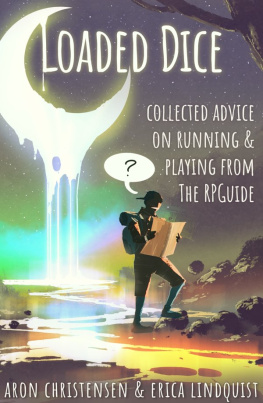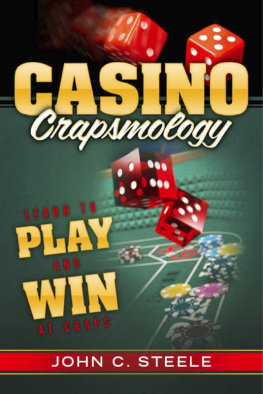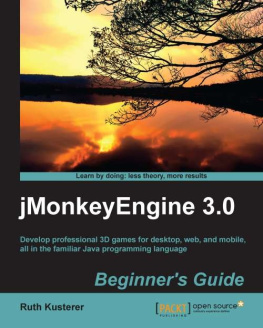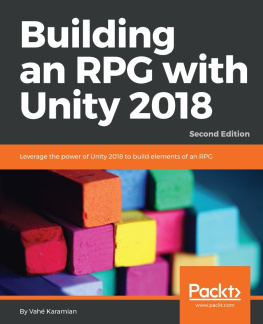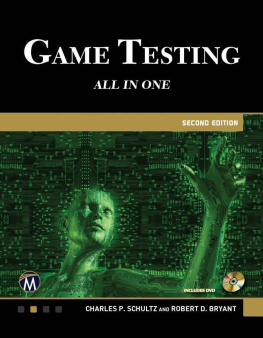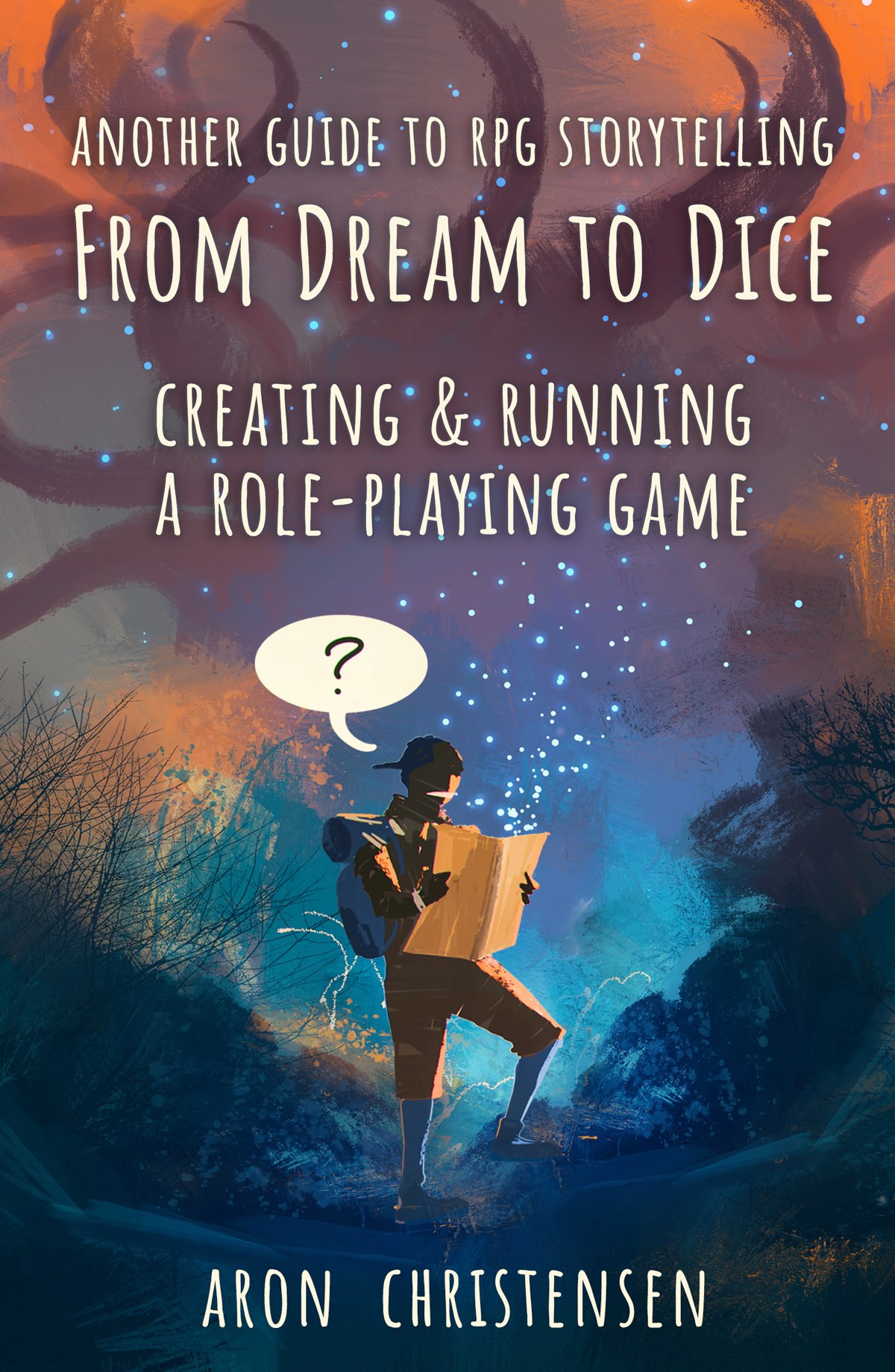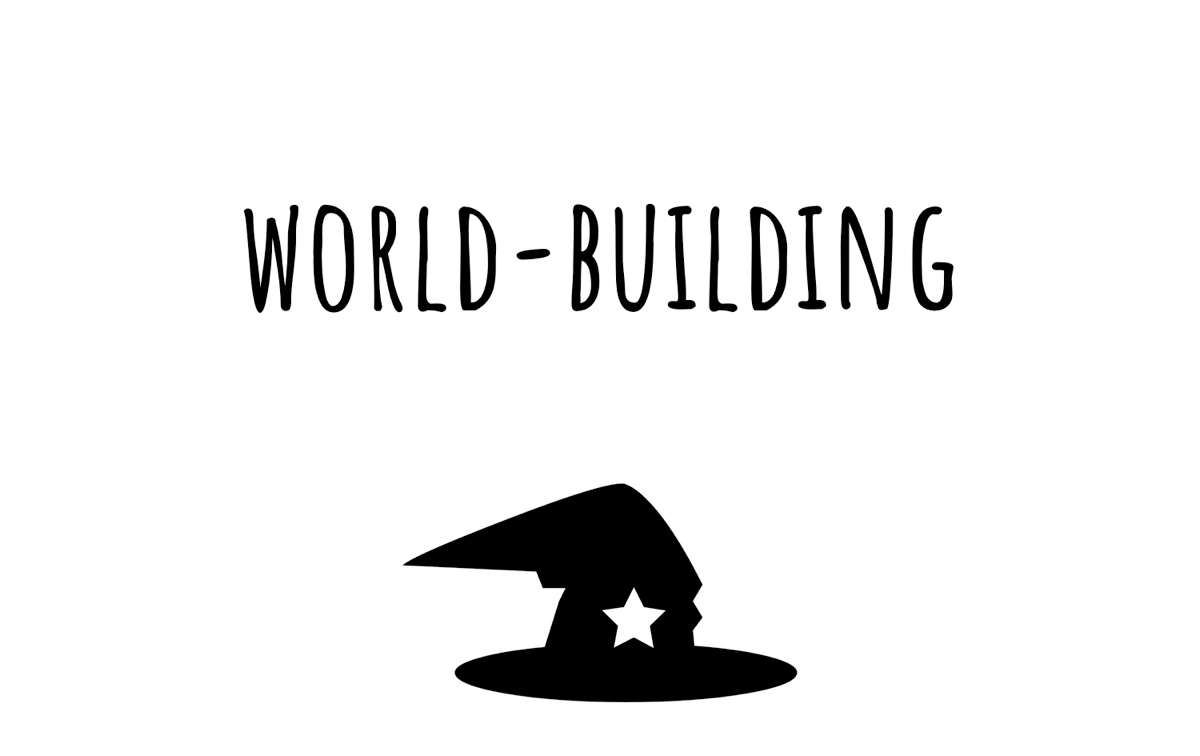I spent the first Storytelling guide and then the companion discussing the methods and tools that I use for running table-top role-playing games. In this third volume, Ill take each of those pieces and actually put them together into an RPG from the initial game concept to final execution and then a detailed post-mortem on each campaign session.
There are lots of ways to role-play and just as many books about each one this is just my take on the process and experience. And so far, Ive never gamed with a group that does it quite the same way I do. Hopefully I have something new or interesting to share.
This book is meant to serve as an example and case study about how I build a game so that you can create your own. Well start with the game concept and a little world-building, then break the story idea down into discrete pieces which Ill expand into the finished chapters that I use to run my game.
After that, Ill actually run the game for my group and tell you how that went, including commentary about how I adapted when my players did something unexpected, how I changed things on the fly, or had to course-correct when I screwed up.
If that all sounds complicated, dont worry its really not. Well just take this thing one step at a time until we turn a simple story idea into a complete role-playing game.
Running a game set in one of the Dungeons & Dragons worlds or another copyrighted setting is just fine within your own group. But in order to publish a guide running you through the process, Ill need to use a setting that wont get my ass sued. Luckily, my wife and I are writers and have built worlds for our own novels so well use one of those. The chances of me suing myself are pretty low.
For this game, I picked out Tydalus. Its a story and setting that we havent published yet, but that has been on our to-do list for a couple of years. Well end up doing a lot of world-building for the game, which I expect will get us excited enough to bump the novel up our list, but that doesnt matter for the role-playing game. What matters here is that I can walk you through how I built the world, and the differences between creating for a novel and a role-playing game.
The world of Tydalus is inspired by what some have named the Mythos the collected works of H.P. Lovecraft and a lot of talented authors who built on and expanded his ideas. But rather than set my story in Lovecrafts early twentieth century or our own modern era, I wanted to take the Mythos back to an archaic fantasy setting. Most of the Mythos elements are public domain, so I was free to draw heavily upon specific monsters and characters, but its the theme Im really after: horrors from deep below the earth, doom descending from the stars, and evil beyond human comprehension. Fun stuff like that.
If you like the setting and game that I put together here, please feel free to use or run it yourself. Just dont publish anything using Tydalus. Chances are pretty good that neither of us can afford to go to court over it, but lets not find out.
One of the other things I can get my butt sued for misusing are copyrighted game systems. So just like the other storytelling guides, I wont be using any system-specific rolls or terminology. Whatever RPG system you usually play doubtlessly has its own dice and rules manuals to cover all of that. I really dont have much to add to the dice-rolling part of RPGs mostly Im going to be talking about how to give a game a narrative shot of adrenalin.
Regardless of your system, Tydalus will introduce a necessary mechanic for any Mythos game horror. Most RPGs dont include it, so you may need to adapt something to fit in. In this case, horror will be a pool used to resist mind-shattering horrors and which will be slowly worn down until the characters begin going mad.
Ive used horror mechanics in RPG systems before, when simply seeing things not meant to be witnessed by the human mind inflicts trauma. When I told my players to roll their perception or alertness, they groaned and asked if their characters could just squeeze their eyes shut and not look. Ignorance truly is bliss.
In the Mythos and the broader genre, sometimes called cosmic horror monsters are real. But this isnt epic or high fantasy, where those monsters can be found in any forest and fought with magic swords for morning exercise. Tydalus is a pre-industrial world in which very few people are aware of the dimensions and powers far stranger than their own, and those rare initiates into the mysteries know to fear them.
With that basic premise out on the table, lets do some world-building for Tydalus.
Fair warning its a long section. I hope that it will help make sense of what Im doing when I begin developing the story. But if it feels like information overload right now, you can just skip up to Chapter 4, and then come back to world-building later, when you already have a sense of the story Im going to tell.
Groundwork
Lets figure out the setting for my game. I have a simple idea for the plot, but it only works because this novel concept has been on our to-write list for a while and I know a bit about the world. So let me catch you up on some of the basics, and then well flesh it out as we go. Since we havent written out the Tydalus novel yet, a lot of these ideas are still vague and will need some work.
Tydalus is an ocean-bound world probably around eighty percent water with the land broken up into islands and a few small continents. A very large, high-mass moon on a long elliptical orbit passes close enough to the planet every few generations to cause the ocean tide to rise up thousands of feet, submerging all but the highest elevations. As a result, human civilizations cling to mountaintop city-states, which turn into islands during high tide. And when the tide is high, horrors from deep below the sea rise up to prey upon humanity.
Because I want monsters and magic to be strange and incomprehensible in this setting, the mystic stuff has to be rare. This is a low-magic setting that means few wizards or blessed clerics, no magic shops or enchanted swords. The heroes of Tydalus are just people with iron wills and keen minds, willing and able to confront ancient evils, to risk their lives and minds to save humanity from cosmic horrors.

